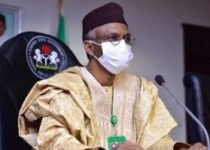Chinua Achebe Biography, Age ,Net Worth, Wiki, Real Name, Children, Instagram, Parents, partner
Chinua Achebe, a renowned Nigerian author, was born on November 16, 1930, in Ogidi, Igbo land. His upbringing in a family that bridged traditional culture and Christian influences profoundly shaped his perspective. This blog post explores Achebe’s life, career, contributions to literature, and his lasting impact.
Chinua Achebe Early Life and Education:
Isaiah Okafo Achebe, Chinua’s father, was a teacher and evangelist, while his mother, Janet Anaenechi Iloegbunam, was a respected church leader and farmer. Achebe’s early exposure to the intersection of traditional Igbo culture and Christianity influenced his later works. Despite being initially enrolled to study medicine, Achebe switched to English, history, and theology due to his dissatisfaction with European literature’s portrayal of Africa.
Chinua Achebe Career:
Achebe’s literary journey began with his groundbreaking novel, “Things Fall Apart” (1958), depicting Igbo life during missionary and colonial rule. He later explored postcolonial themes in works such as “No Longer at Ease,” “Arrow of God,” “A Man of the People,” and “Anthills of the Savannah.” Achebe’s contributions extended beyond novels to children’s literature, essays, and anthologies.
Teaching Strides:
In addition to his writing, Achebe had a successful teaching career, holding positions in Nigeria and the United States. He became a professor at Brown University after leaving Bard College in 2009.
Political Crises:
Achebe experienced political turbulence in Nigeria between 1966 and 1972. He faced persecution for his views, leading him to flee to Nsukka during the Biafran civil war. Achebe later used his platform to speak about Biafran issues in Europe and America.
Chinua Achebe Personal Life:
Achebe married Christie Chinwe Okoli in 1961, and they had three children: Chinelo, Ikechukwu, and Chidi. Concerned about the biased portrayal of Africa in their children’s education, Achebe wrote his first children’s book, “Chike and the River,” in 1966.
Chinua Achebe Legacy and Awards:
Chinua Achebe’s legacy extends beyond his literary works. He received numerous awards, including the Man Booker International Prize in 2007. Achebe’s impact on world literature is undeniable, challenging the Eurocentric perspectives prevalent in earlier works.
Publications:
Achebe’s extensive bibliography includes classics like “Things Fall Apart,” “Arrow of God,” and “A Man of the People,” as well as essays such as “Hopes and Impediments” and “The Trouble with Nigeria.”
Awards and Nominations:
Achebe received accolades such as the Man Booker International Prize in 2007, highlighting his global influence. His dedication to denouncing corruption in Nigeria and supporting fellow writers showcases his commitment beyond literature.
Conclusion:
Chinua Achebe’s life and literary contributions continue to inspire readers globally. His insightful narratives, tackling colonialism, postcolonial Africa, and cultural identity, remain relevant. Achebe’s impact on literature, education, and political discourse solidifies his place as a literary giant. The legacy he left behind ensures that generations to come will engage with and appreciate the rich tapestry of his work.
FAQ:
- What is Chinua Achebe’s most famous work? Chinua Achebe’s most famous work is “Things Fall Apart,” published in 1958.
- Where did Chinua Achebe teach in the United States? Achebe taught at Bard College in Annandale-on-Hudson, New York, and later at Brown University in Providence, Rhode Island.
- How many children did Chinua Achebe have? Achebe and his wife, Christie, had three children: Chinelo, Ikechukwu, and Chidi.
- What awards did Chinua Achebe receive? Achebe received several awards, including the Man Booker International Prize in 2007, the Dorothy and Lillian Gish Prize in 2010, and the German Booksellers Peace Prize in 2002.
Related Posts
Related Posts

Gift Osayande Biography, Age ,Net Worth, Wiki, Real Name, Children, Instagram, Parents, partner

Nasir Ahmad El-Rufai Biography, Age ,Net Worth, Wiki, Real Name, Children, Instagram, Parents, partner

